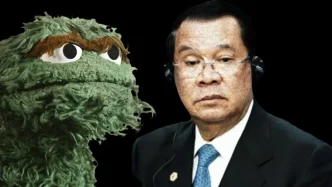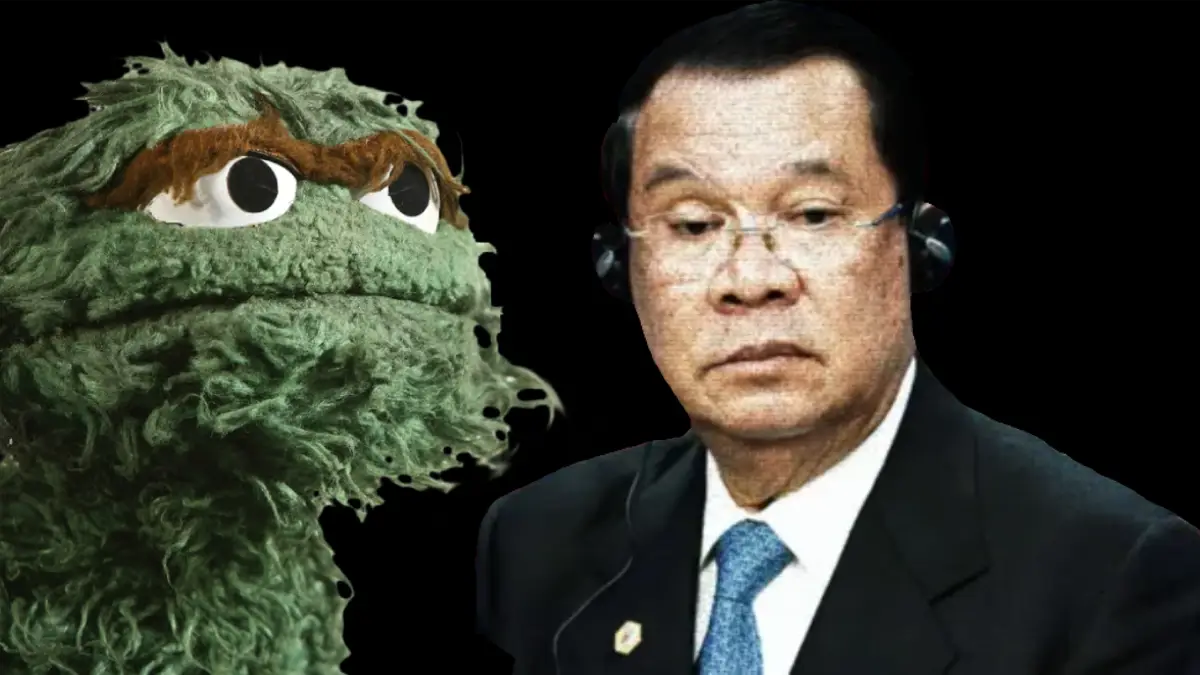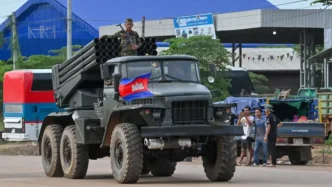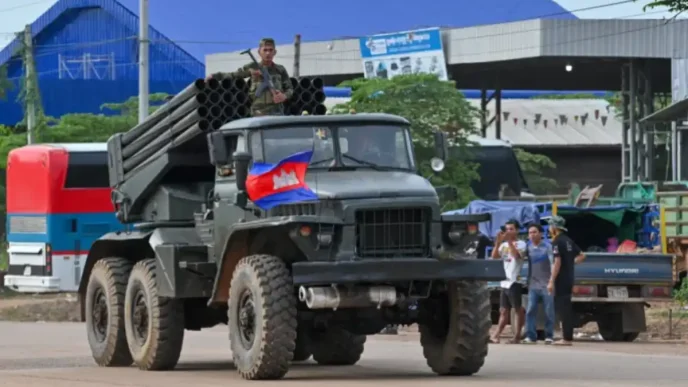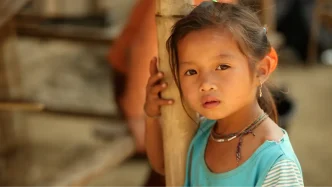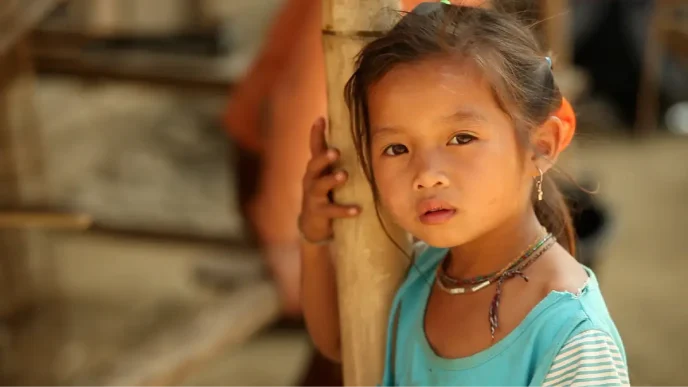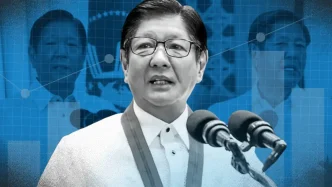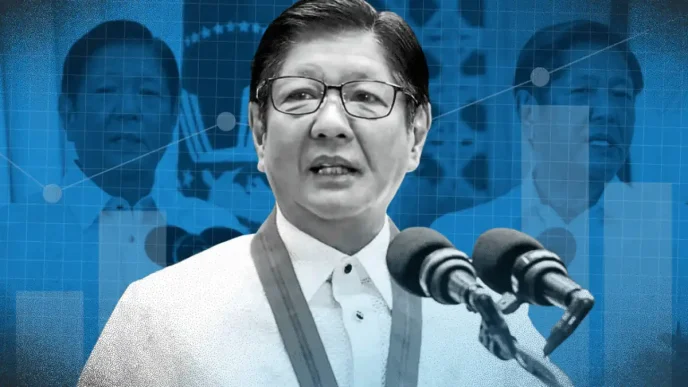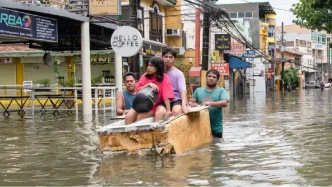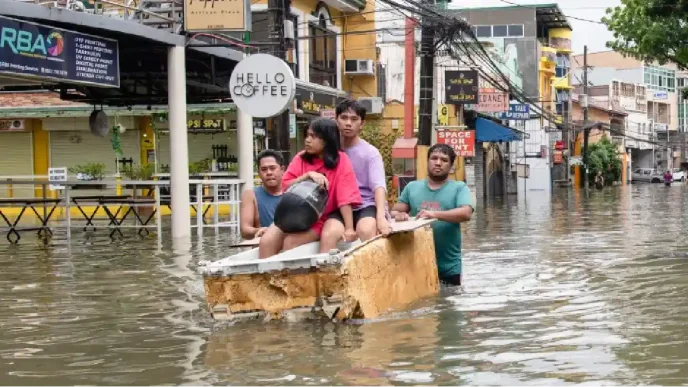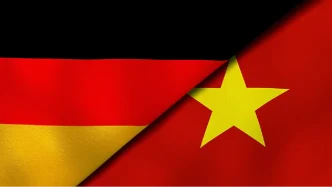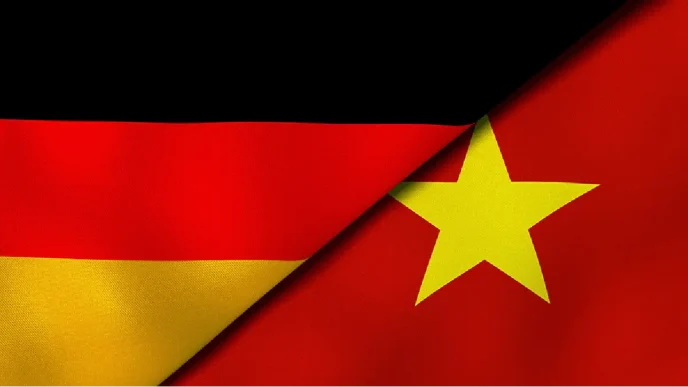A leaked phone call between Cambodia’s Senate President Hun Sen and Thailand’s then-Prime Minister Paetongtarn Shinawatra has ignited a diplomatic firestorm, exacerbating a deadly border dispute and challenging the core principles of the Association of Southeast Asian Nations (ASEAN). The incident, coupled with military escalations near the disputed Preah Vihear temple, has plunged bilateral relations into chaos, raising urgent questions about the future of regional unity and the viability of ASEAN’s long-standing non-interference doctrine.
From Private Call to Public Scandal
The crisis traces back to a private conversation on June 15, 2025, intended to de-escalate tensions following a fatal border clash on May 28 in the Emerald Triangle, a contested region where Thailand, Cambodia, and Laos meet. During the call, Paetongtarn Shinawatra addressed Hun Sen with the regional honorific “uncle” and reportedly discussed internal Thai military dynamics in a bid to ease friction. However, in a stunning breach of diplomatic protocol, Hun Sen recorded the conversation without consent and shared the 17-minute audio on his Facebook page on June 19, 2025, claiming it was an act of transparency.
The leak triggered immediate backlash in Thailand. Opposition groups and military leaders accused Paetongtarn of undermining national security by discussing sensitive matters with a foreign leader. The political fallout was swift: on June 25, the Bhumjaithai party withdrew from her Pheu Thai-led coalition, slashing its parliamentary majority to a precarious 10 seats. By June 28, around 10,000 protesters had gathered in Bangkok, demanding her resignation over what they saw as a betrayal of trust.
The situation reached a tipping point on July 1, when Thailand’s Constitutional Court removed Paetongtarn from office, citing a violation of ethical standards under Section 160 of the Constitution due to her tone and remarks during the call. Her 10-month tenure ended abruptly, with Deputy Prime Minister Suriya Jungrungruangkit stepping in as acting leader. Paetongtarn later expressed regret, describing her approach as a “negotiation tactic” meant to reduce tensions, while vowing to avoid further private discussions with Hun Sen due to the breach of trust. Thailand’s Foreign Ministry issued a sharp rebuke, labeling the leak a “serious violation of diplomatic etiquette” that severely damaged bilateral ties.
Military Escalation at Preah Vihear
As diplomatic relations unraveled, the border dispute escalated into open violence. On July 24, 2025, Cambodian forces launched artillery and rocket attacks on Thai positions near the Preah Vihear temple, a UNESCO World Heritage site long at the heart of territorial disagreements. The assault resulted in the deaths of Thai soldiers and civilians; attacking a 7-Eleven and a hospital. Thailand responded with F-16 airstrikes and missile strikes on Cambodian targets. Both actions contravened a 2001 Memorandum of Understanding (MoU 44) that commits the two nations to resolving border issues through peaceful joint demarcation talks.
The Preah Vihear dispute, originating from a 1962 International Court of Justice (ICJ) ruling that awarded the temple to Cambodia, has been a persistent source of nationalist fervor on both sides. The 2011 clashes in the area saw thousands of troops deployed and displaced around 30,000 civilians. The 2025 violence, the most severe since then, prompted Thailand to tighten border controls, suspending trade in essential goods like fruit, oil, and gas, and threatening to halt electricity supplies to Cambodian border towns. Cambodia retaliated by banning Thai media and suspending fuel imports, further straining its already fragile economy.
With both countries reinforcing their 508-mile shared border, fears of a wider conflict loom large. Cambodia has appealed to the ICJ over Thailand’s airstrikes, while Thailand insists on resolving the matter bilaterally, creating a deadlock that neither side appears willing to break. The violence and ensuing trade disruptions have left border communities on both sides vulnerable, with small businesses bearing the brunt of the economic fallout.
ASEAN’s Non-Interference Doctrine Under Strain
Hun Sen’s decision to publicize the private call, combined with the military escalation, has struck at the heart of ASEAN’s foundational principle of non-interference, which prioritizes mutual trust and discreet diplomacy among member states. For over five decades, this doctrine has allowed the bloc to maintain a unified front on global challenges, from pandemics to geopolitical conflicts, despite the diverse political systems and cultural landscapes of its members. However, recent crises—such as China’s assertive claims in the South China Sea, Myanmar’s ongoing civil war, and transnational issues like human trafficking—have already exposed cracks in ASEAN’s framework. The Thailand-Cambodia dispute risks deepening these fractures.
Analysts have described the leak as a profound breach of diplomatic norms, one that undermines ASEAN’s credibility on the world stage. Malaysia’s Prime Minister Anwar Ibrahim, serving as the 2025 ASEAN chair, has advocated for dialogue to address the crisis, building on his efforts to mediate other regional conflicts. Yet, ASEAN’s consensus-driven approach, which avoids direct intervention in bilateral disputes, appears ill-equipped to handle the current situation. The incident highlights a pressing need for clearer guidelines on informal diplomatic engagements, particularly in an era where such interactions can be easily recorded and weaponized.
Beyond the immediate conflict, the crisis reflects broader challenges to ASEAN’s cohesion. Cambodia’s alignment with China often puts it at odds with other members like the Philippines and Vietnam over maritime disputes, while Myanmar’s military junta has consistently disregarded the bloc’s peace initiatives. The Thailand-Cambodia row, fueled by personal and political rivalries, underscores how individual leaders can prioritize domestic agendas over regional harmony, further complicating ASEAN’s efforts to present a united front.
Political Dynasties and Power Dynamics
The personal histories and political legacies of the figures at the center of this crisis add another layer of complexity. In Thailand, the Shinawatra family—comprising Thaksin, Yingluck, and now Paetongtarn—has long been a dominant force in politics, despite facing coups and legal challenges. Paetongtarn’s ousting weakens the family’s grip on power, potentially paving the way for military-aligned elites to reassert control. In Cambodia, Hun Sen, who ruled as prime minister for 38 years before stepping down in 2023, continues to wield immense influence as Senate President, having installed his son, Hun Manet, as the current leader. Some observers suggest that the leak and border escalation may serve as a distraction from domestic criticism over issues like human trafficking, bolstering support for the Hun regime.
Such dynastic politics are not unique to Thailand and Cambodia. Across ASEAN, leaders like Ferdinand Marcos Jr. in the Philippines and members of Joko Widodo’s family in Indonesia often prioritize nationalist agendas to consolidate power, sometimes at the expense of regional stability. The interplay of personal loyalties and political maneuvering in the current crisis illustrates how deeply entrenched family ties can shape, and sometimes destabilize, diplomatic relations in Southeast Asia.
Economic Fallout and Human Cost
The border closure and trade restrictions have inflicted significant economic damage, particularly on Cambodia, which relies on Thailand for approximately 30% of its imports, including critical goods like fruit, oil, and electricity. The suspension of these supplies threatens to drive inflation and exacerbate hardship for border communities already struggling under the weight of Cambodia’s economic challenges. Small businesses, unable to absorb the disruptions, face collapse, while Cambodia’s retaliatory measures, such as banning Thai media and halting fuel imports, risk further isolating its economy.
Thailand, though less dependent on Cambodian trade, is not immune to the fallout. Border markets have been disrupted, and the political instability following Paetongtarn’s removal has intensified domestic uncertainty. Following the removal of Paetongtarn Shinawatra, Thailand saw three Prime Ministers in a week—PaetongtarnWorst case scenario—the Pheu Thai party could face a potential no-confidence vote that could lead to its dissolution, further destabilizing the country’s political landscape. Meanwhile, Thailand’s border restrictions, partly justified as a measure to curb transnational crime, have severed vital supply chains, leaving ordinary citizens on both sides to bear the consequences.
Cambodia’s economic woes are compounded by its heavy reliance on Chinese aid, which has failed to fully offset Western sanctions and a decline in foreign investment. The border crisis only deepens these vulnerabilities, highlighting the fragility of economies caught in geopolitical crossfires. For many in the region, the conflict is not just a matter of high-level diplomacy but a daily struggle for survival amid escalating tensions.
A Test for ASEAN’s Future
As the Thailand-Cambodia border crisis unfolds, it poses a critical test for ASEAN’s ability to adapt its non-interference doctrine to the complexities of modern conflicts. The leaked call and subsequent violence reveal the risks of informal diplomacy in an age of digital transparency, where personal rivalries and domestic politics can quickly spiral into regional crises. With trust between member states eroding, the bloc faces a pivotal moment: can it evolve to address bilateral disputes more effectively, or will dynastic power plays and nationalist fervor continue to undermine its unity?
For now, the border remains tense, and the diplomatic wounds inflicted by Hun Sen’s actions are far from healed. As both nations grapple with the fallout, the broader implications for Southeast Asia hang in the balance, with ASEAN’s role as a stabilizing force under unprecedented scrutiny.

